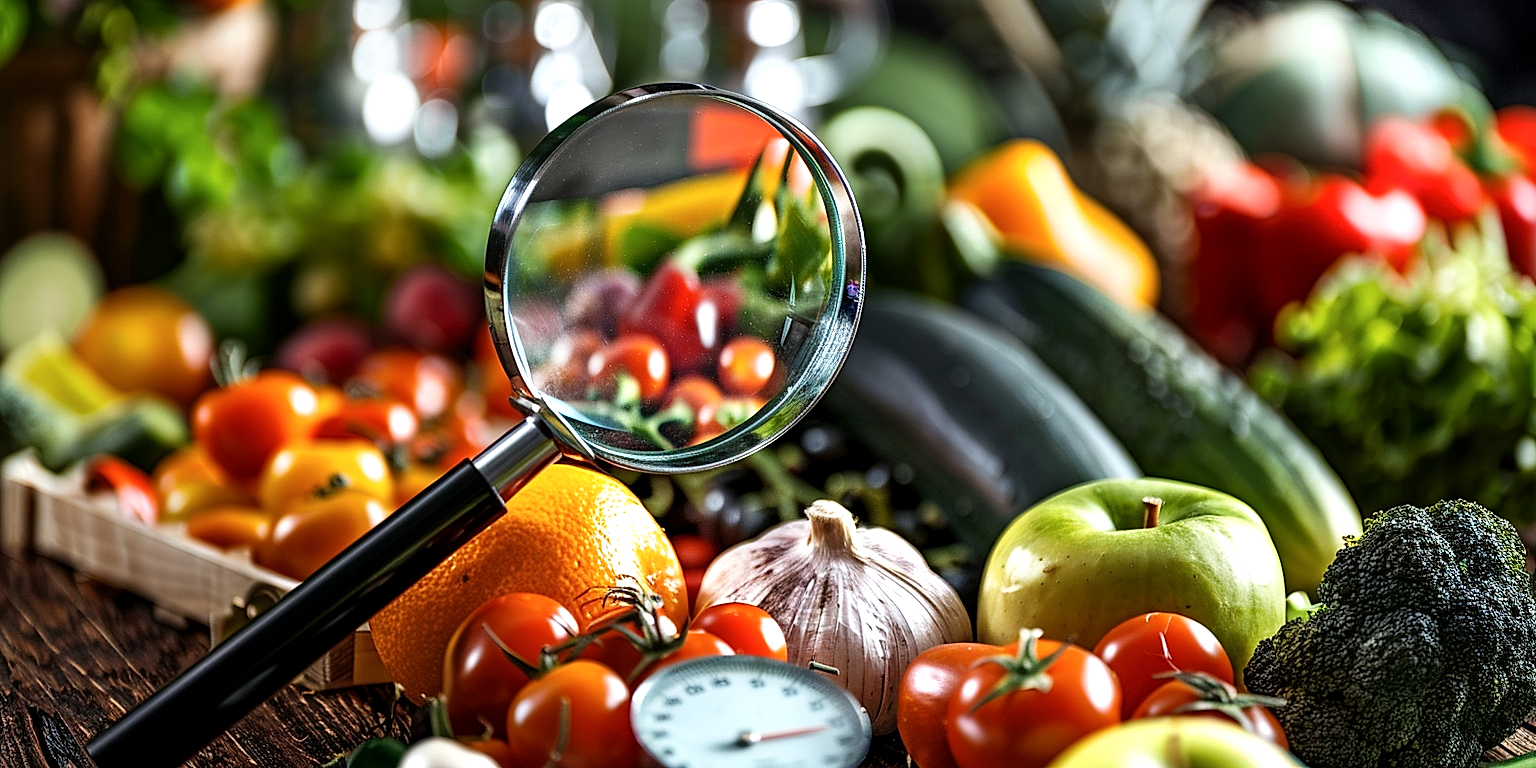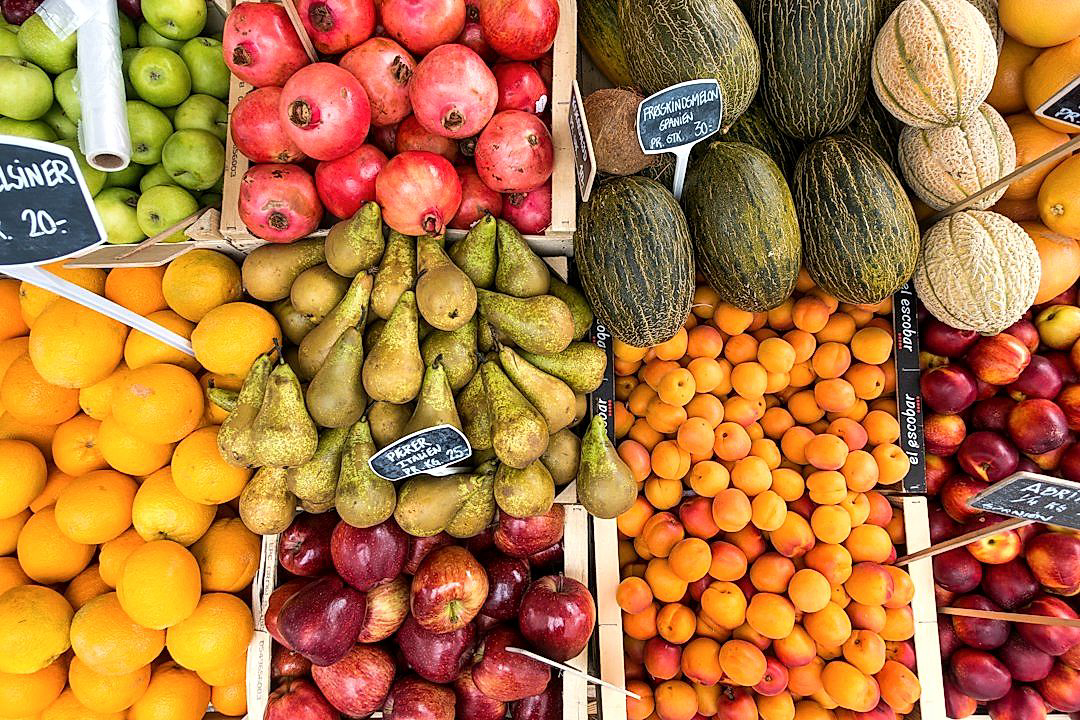Achieving organic certification is a significant milestone for any produce retail store.
It not only conveys credibility but also establishes trustworthiness in the eyes of customers, who are increasingly seeking organically grown products.
The process may seem complex initially, however, with the right knowledge and understanding, it can be quite manageable.
In this increasingly health-conscious era, going ‘organic’ is more than a trend; it’s a commitment to quality and sustainability.
For those considering this route, a thorough comprehension of the required steps is crucial.
We will delve into these details, providing a comprehensive guide to ensure that your endeavor proves successful.
Contents
Steps To Ensure Organic Certification For Your Produce Retail Store
1. Choose USDA-accredited organic certifying agent.
When you decide to make the transition to organic farming, the first step to ensure organic certification for your produce retail store is choosing the right USDA-accredited organic certifying agent.
This choice is crucial as the certifying agent is responsible for reviewing your organic system plan and verifying that your operation meets all the necessary USDA organic standards.
While there are numerous certifying agents to choose from, the certifier you choose must be USDA-accredited.
A list of USDA-accredited organic certifying agents can be found on the USDA’s National Organic Program (NOP) website, which will allow you to find a certifying agent based on your operation’s location and scope.
It’s vital to understand that each certifying agent may operate slightly differently, and thus, it’s wise to research each potential agent thoroughly to comprehend their standards, services, and fee structures.
To make an informed choice, you should try to gather as much information as possible about potential certifying agents.
Speaking to other organic farmers who have undergone the certification process could prove helpful as they can provide insights into their experiences with various certifying agents.
Before you make a decision, it’s also important to consider your farm’s unique needs and circumstances and to select a certifying agent who is capable of meeting these needs.
Through careful consideration and a thorough understanding of your farming operation, you’ll be able to choose a certifying agent that’s suited to help you achieve organic certification.
The certifying agent you choose will become a trusted partner in your transition to organic farming as they will guide you through the process, provide you with valuable information, and help you adapt to changing regulations.
Your relationship with your certifying agent doesn’t end once you achieve organic certification; they will also play a vital role in maintaining your certification through regular inspections and reviews.
The process of transitioning to organic farming and achieving certification requires a commitment to continuous learning and improvement, and choosing the right certifying agent is a major factor in making this commitment a success.
Your organic certifying agent will serve as your guide, supporting your organic farming operation as it grows and evolves to meet USDA organic standards.
It might take some time and research to find the right organic certifying agent for your operation, but the effort is worth it as a well-chosen certifying agent will play a crucial role in ensuring your organic certification success.
Remember that selecting the right organic certifying agent is a major step towards successful organic certification, and this decision requires careful consideration and thorough research.
2. Develop an Organic System Plan
Developing an organic system plan is a critical step in ensuring the organic certification of your produce retail store.
It serves as a blueprint that outlines how your store will comply with the USDA organic standards and regulations.
The plan should detail your store management practices and components such as sourcing, handling, and tracking of organic products.
The process of developing this plan requires thoroughness, commitment, and a clear understanding of organic protocols.
It’s crucial to emphasize transparency and traceability in your organic system plan.
Every source and endpoint of your produce supply should be clearly accounted for, to ensure complete traceability.
The plan must have clear procedures in place for handling organic produce to avoid contamination or mixing with non-organic produce, thus maintaining integrity.
Training staff members about these procedures is also an important aspect of your plan, as they are likely to be the point of contact with the organic produce.
The organic system plan also includes the steps your store will take in case of a breach in compliance, or if any issues are detected during an inspection or audit.
All proposed actions must be well-documented and aligned with the USDA organic regulations.
The plan is not a one-off document, it should be periodically revised and updated to remain applicable as store operations, sources, or regulations may change over time.
Through this plan, you can demonstrate to the USDA-accredited certifying agent that your retail store is committed to maintaining organic integrity.
It’s your store’s responsibility to show that all necessary steps are taken to ensure the organic integrity of every single product you sell.
The development of this plan may take some time, but it’s an essential stage in obtaining organic certification.
Ultimately, the implementation of an organic system plan advances the credibility, sustainability, and success of your organic retail store.
3. Apply for Organic Certification
The application process for organic certification is an integral step in establishing the organic credibility of your produce retail store.
Submitting a complete and accurate application to an accredited certifying agent is crucial for a smooth certification process.
It’s important to remember that the retailer’s organic compliance doesn’t end with application submission; it’s just getting started.
Your part in the requirement fulfilment and review by certifying agents begins with the application.
The organic certification application process requires a thoughtful and detail-oriented approach.
Ensure you understand all the questions and prompts of the application well.
Provide detailed and honest responses as incomplete or false information can jeopardize your chances of getting certified.
Consult the USDA National Organic Program regulations to ensure you meet all the organic production standards that work in tandem with your organic system plan.
Also, ensure you’re applying organically compliant pest management, manure management, and soil fertility management practices.
Applicants typically need to provide several years of records that document organic system planning and execution.
Beyond documentation,, you may need to disclose your sources of seeds, crop rotation system, and pest control methods to certify that all management practices align with organic standards.
It’s key to remember that the application process isn’t just a one-off event but rather a continuous system of checks and balances. You will need to monitor and self-audit your compliance even after submission of the application.
In case of any changes to your organic system plan post-submission of an application, you should communicate those changes to your certifying agent directly.
The response time frames for applications can vary depending on various factors like the certifying agency, completeness of your application, and the time of year.
Above all, remember to stay patient throughout the application process. It might take time, but organic certification is an integral part of your commitment to providing healthy and sustainable produce.
In the end, getting the USDA organic seal on your produce not only verifies its quality but also enhances the trustworthiness of your retail store in the market.
4. Undergo Inspection and Review
The process of inspection and review plays a crucial role in obtaining organic certification for your produce retail store.
This step comes after you have developed an organic system plan and applied for certification, symbolizing the actual testing of your store’s adherence to the organic standards.
The inspection is typically carried out by an inspector hired by your organic certifying agent, ensuring a neutral and thorough review of your practices.
The inspector’s job is to verify aspects such as your farming practices, pest management procedures, record-keeping, and compliance with other required organic regulations.
The inspection process is announced in advance, giving you time to prepare and gather any necessary paperwork.
However, unannounced inspections also feature as part of the procedures, to maintain the integrity and authenticity of the organic certification process.
During the inspection, the agent will go through your products, scanning for prohibited substances and confirming if all organic specifications are adhered to.
Remember, if any prohibited substances are found in your produce, it could derail your application for certification.
In addition to the product inspection, the inspector will also review your records and documents.
This includes checking your inventory, purchase records, cleaning protocols, and the organic system plan you submitted in your application.
It is crucial to maintain accurate and current records as they are a key determinant of your adherence to organic protocols.
After the inspection, the inspector submits a report to the organic certifying agent, who reviews it before making a certification decision.
The review takes into account the findings of the inspection as well as your application and organic system plan.
If any areas of non-compliance are identified, you will be given a chance to rectify the issues before a final decision is made.
Non-compliance doesn’t automatically mean disqualification, but it’s important to take immediate steps to correct the issues pointed out.
It’s also important to understand that the inspection and review process can be a journey; it compliments the other steps in the organic certification process and can lead to continuous improvement of your practices.
5. Maintain compliance and annual recertification.
Once you have successfully achieved your organic certification from a USDA-accredited agency, the journey is not over.
It is essential to remember that maintaining the status of being certified is an ongoing process .
Ensuring your produce retail store’s organic credentials remain intact calls for diligence in maintaining compliance, as well as the need for annual recertification .
Compliance refers to adhering to all the requisite organic production standards that were initially set forth in your organic system plan.
Every aspect from soil and seed to pest management and harvesting must continually align with organic standards in order to maintain compliance.
The traceability of your organic products should be monitored consistently to ensure that there are no lapses in organic integrity at any point in the supply chain.
If there are any changes in your practices or if you choose to introduce new products, these need to be evaluated and approved by your certifying agent .
Maintaining compliance is a rigorous process requiring not just adherence to the rules, but also a consistent effort to advance and strengthen your store’s commitment to organic practices.
The second integral part of this step is annual recertification .
This means that every year, you need to submit a new application for certification and undergo another inspection to confirm that your practices are still in line with organic standards.
Even though this may sound daunting, it’s an opportunity for your retail store to showcase the ongoing commitment to organic agriculture .
If any non-compliances are detected during the inspection, these are highlighted in the inspection report, and you will be expected to correct these within a given timeframe .
This rigorous review process helps ensure that your retail store continues to uphold the integrity of the USDA organic seal and the expectations of your consumers.
Remember, ongoing education and staying abreast of the latest developments in organic regulations and practices is an integral part of maintaining your organic certification .
There may be various workshops, seminars, and other training opportunities provided by your certifying agent or other stakeholders in the organic industry that can help you stay informed and continue to enhance your organic practices .
Overall, the maintenance of organic certification involves continuous hard work, but the pay-off lies in promoting a more sustainable food system , greater customer trust, and a competitive edge in the market.
The Bottom Line
Navigating the process of organic certification can certainly seem a daunting endeavor at first glance.
However, with careful selection of a USDA-accredited organic certifying agent, detailed development of an organic system plan, followed by an application for certification, the path becomes notably clearer.
Subjecting oneself to the meticulous but necessary phase of inspection and review underlines the integrity of the process.
Ultimately, maintaining unwavering compliance and ensuring annual recertification solidifies your commitment to upholding organic standards.
The journey might be meticulous, but the rewards of organic certification – better product credibility, environmental sustainability, and customer trust – are undeniably worthwhile.
This clearly illustrates the significance and benefits of undergoing a thorough and reliable organic certification process.




